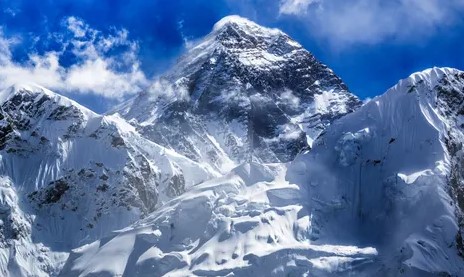
The trio was crossing the treacherous Khumbu Icefall while carrying supplies to Camp 1, a waystation on the route to the mountain’s 8,849-metre (29,032-foot) peak.
“We are still getting details, but we know that they were hit by a mass of snow this morning and are missing in a crevasse,” Bigyan Koirala of Nepal’s tourism department told AFP.
“Teams at the base camp are working together for search and rescue.”
The Khumbu Icefall is a dangerous, ever-shifting expanse of glacial ice that requires climbers to navigate crevasses over rickety ladders.
A helicopter deployed for the search returned without locating the missing climbers.
Nepali guides – usually ethnic Sherpas from the valleys around Everest – are considered the backbone of the climbing industry in the Himalayas.
They account for around a third of the deaths on Everest, underscoring the risks they take in service of the hundreds of adventurers aiming to summit the world’s highest peak.
For each expedition, they make several dangerous trips to ferry tents, food and oxygen bottles to high-altitude camps.
In 2014, an immense tumbling wall of snow, ice and rock killed 16 Nepali guides on the icefall in one of the deadliest accidents in the Himalayas.
Nepal is home to eight of the world’s 10 highest peaks and welcomes hundreds of adventurers each spring climbing season, when temperatures are warm and winds are typically calm.
The government has issued more than 500 climbing permits for various Himalayan mountains, including 243 for Everest, this season.
AFP














